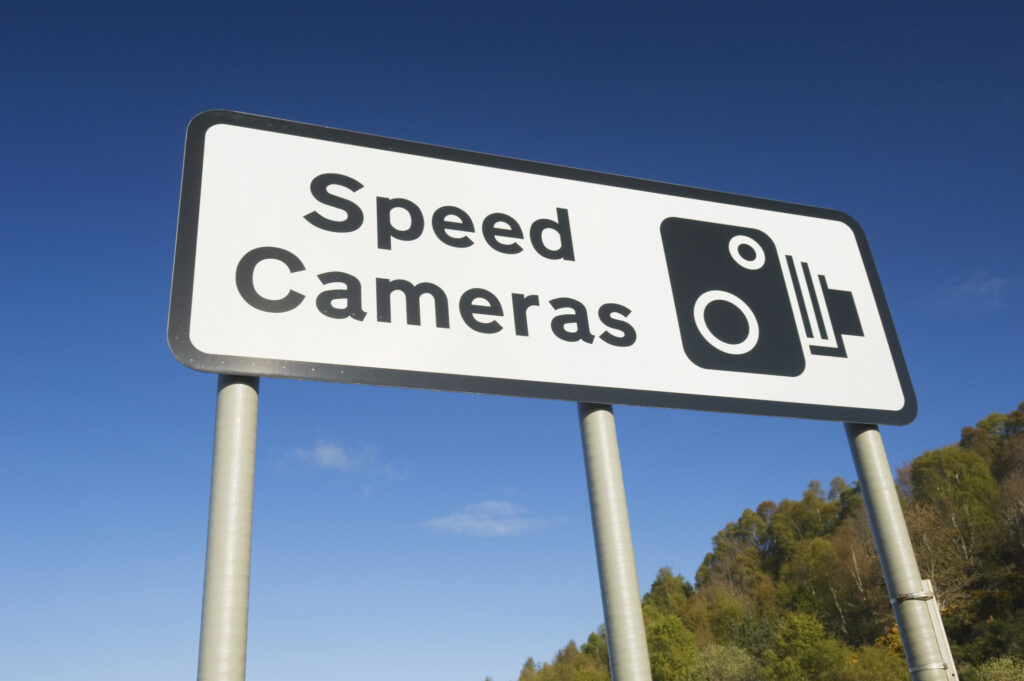Do speed cameras impact CVOR safety ratings?
Does this situation seem familiar? Long after what you remember as an uneventful drive, you receive a letter in the mail stating you were caught speeding by a speed camera and you are given a hefty fine.
If this rings a bell, you are not alone as reports estimate that the City of Toronto alone collected more than $34 million in the first two years of its speed camera program alone.

With proponents claiming that speed cameras increase safety and detractors arguing they are nothing but municipal cash grabs, speed cameras in Canada remain a hot button issue. Quebec courts even temporally declared them hearsay evidence in 2016.
As speed cameras become more prevalent, drivers should be aware of the implications of being caught by one. Although being photographed by a speed camera in Toronto will lead to a charge against the owner of the vehicle, no demerit points will be assessed against the owner or driver of the vehicle, which would otherwise have occurred had the driver been stopped by the police and issued a ticket.
While speed cameras are able to determine the identity of the vehicle breaking the law, they can’t determine who is driving it. This means that, although the vehicle’s owner will be charged and fined, the driver will not receive a charge, fine or demerit points.
Will speed camera conviction affect CVOR?
A conviction for a speed camera charge against the owner of the vehicle will not appear on the owner’s driver’s record, which means that such a charge typically won’t affect insurance premiums. However, if the vehicle is a commercial motor vehicle, a conviction for a speed camera offence is treated like any other speeding contrary to section 128 of the Highway Traffic Act, and will impact the operator’s Commercial Vehicle Operator Registration (CVOR) by way of the imposition of conviction points.
This is because conviction points contribute to the carrier’s overall violation rate which in turn may have an impact on the carrier’s safety rating. A carrier will receive one conviction point for a driver speeding 1-10 km/h above the posted limited, two points for speeding 11-20 km/h above and five points for driving 21 km/h above.
Best approach: Obey the limit
To avoid speed camera charges, drivers should, obviously, not engage in speeding. Importantly, however, speed cameras can only be placed in school zones or designated community safety zones and their location must be openly identified via a “Municipal Speed Camera in Use” sign displayed either at, or immediately before, the location of the speed camera.
However, police officers sitting at speed traps and physically operating a radar gun are not required to warn approaching vehicles of their presence and, accordingly, the best protection for motorists is still to respect posted speed limits and traffic signs.
The takeaway is that the owner of the truck will be the party charged with any speed camera violation and a conviction will result in conviction points assigned to their CVOR. As such, carriers should ensure their drivers understand the risks of being caught speeding by way of a speed camera and should consider contesting charges to protect their CVOR safety rating.
Have your say
This is a moderated forum. Comments will no longer be published unless they are accompanied by a first and last name and a verifiable email address. (Today's Trucking will not publish or share the email address.) Profane language and content deemed to be libelous, racist, or threatening in nature will not be published under any circumstances.
I’d be interested to learn more about the success rates of contesting a speeding ticket, camera or otherwise. Is this a useful thing to do, or are you just paying money for a lawyer and you’re going to get dinged anyway?
-
Hi Brian,
It was just announced that the city of Toronto is planning to remove the ability to fight these tickets!
Thanks for this informative article Noah!
Regardless of what anyone thinks of speed cameras as a cash grab or otherwise we seem to forget the underlying issue here. The law states on a sign how fast we are allowed to travel through cities, towns and all areas. This has been posted for a reason, safety. Our society has taken the mislead stance that its not breaking the law if you don’t get caught……wrong!!
Breaking the law is breaking the law and if you do it you will be penalized. There’s no right way to do the wrong thing. We should all be thankful that there is still somebody holding us all accountable for breaking the law. Over the years, speeding has been proven and known to be dangerous and at times fatal.
Instead of trying to figure out ways to keep these fines and all from impacting our licenses and insurance rates by hitting our driving record I have a better solution…..slow down and obey the laws that our own tax money pays the very people who make and enforce these laws!
We would then not have to worry about being penalized and the world would be a much safer place on our streets and roads!!
A ticket for 1 km/h over the limit? Really? That does not make an allowance for variations in speedometers which are not exactly calibrated like speed cameras and radar are.
Thank you for highlighting this issue. Red light cameras have a similar impact, but with 5 points for the CVOR